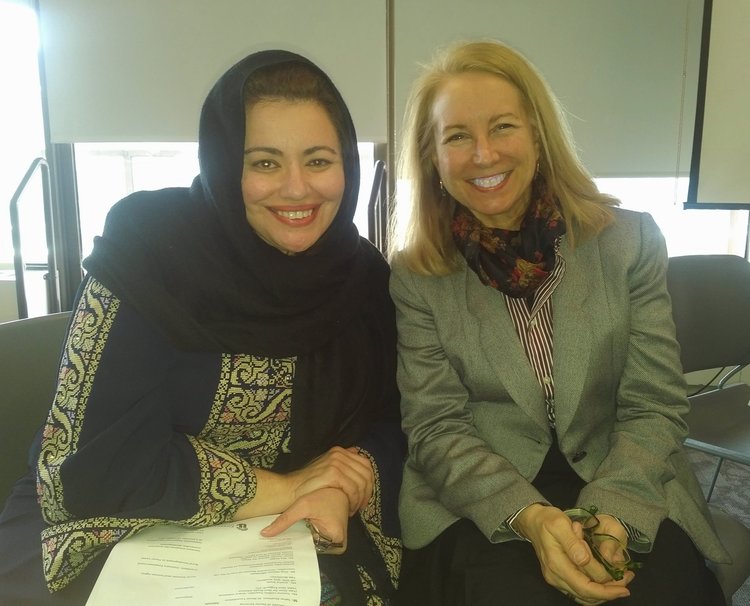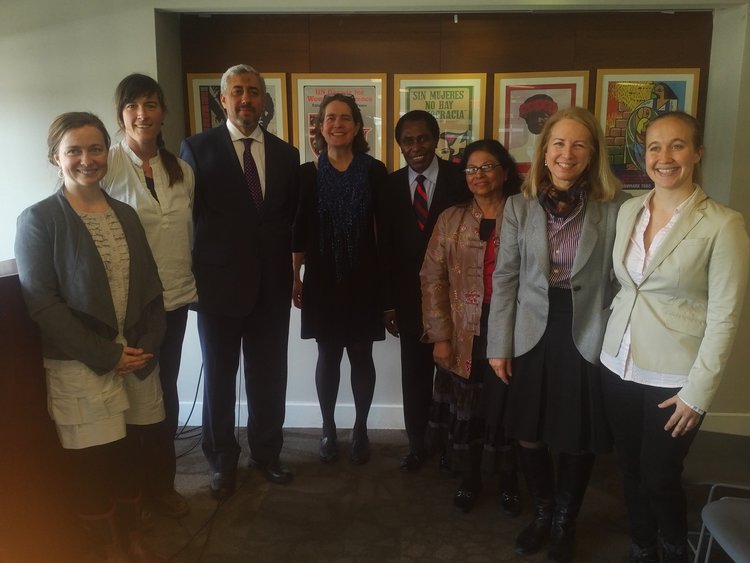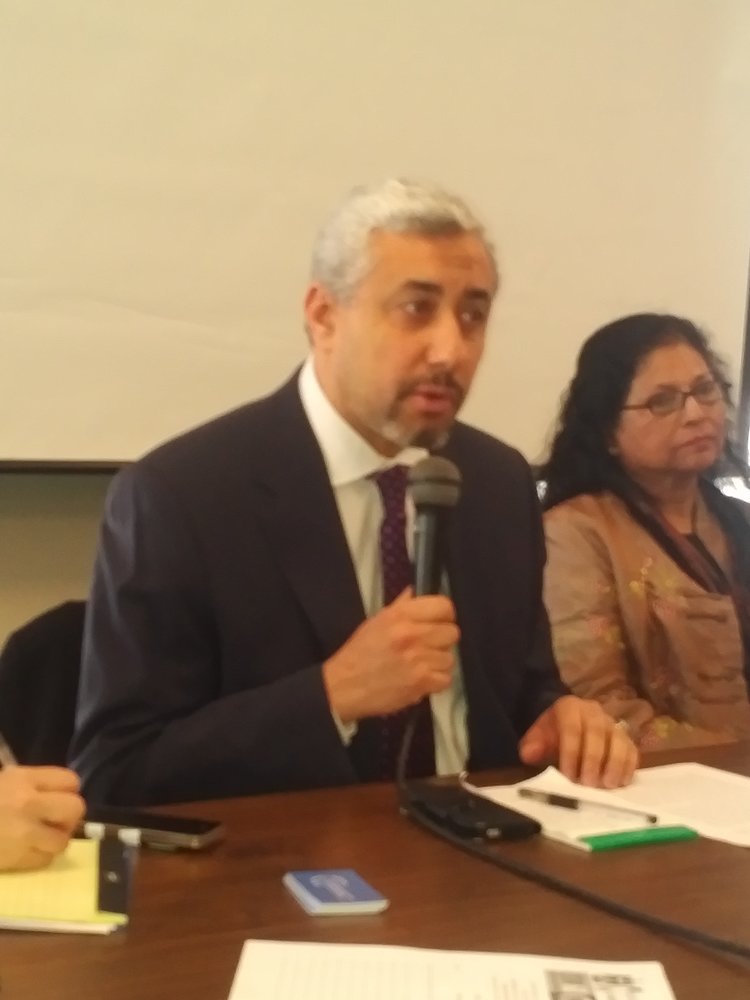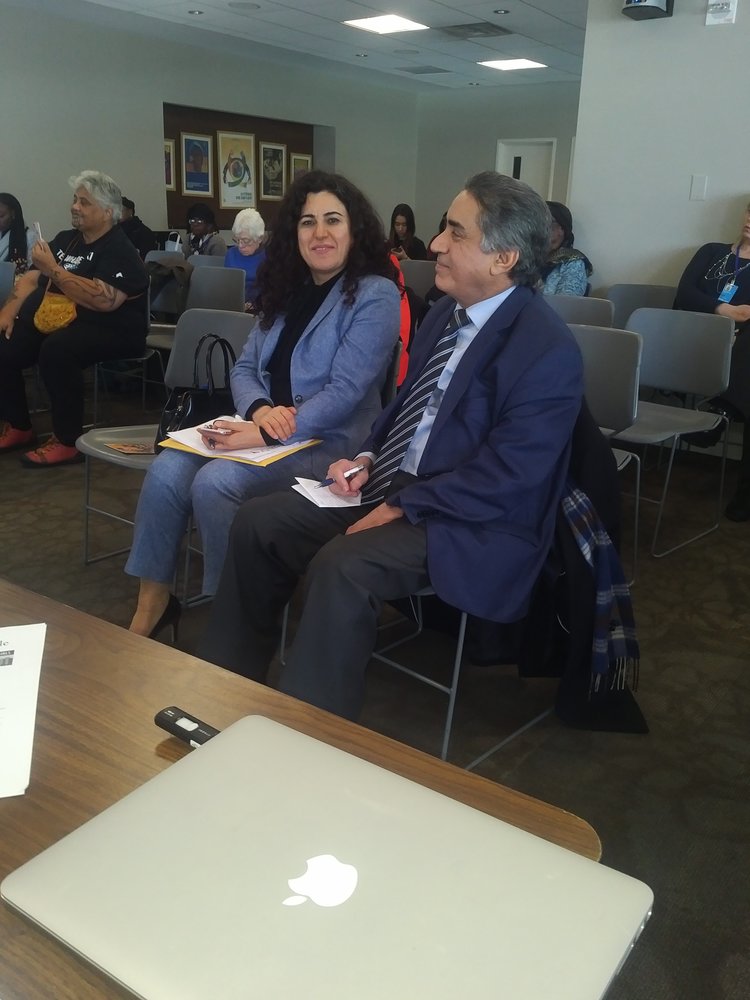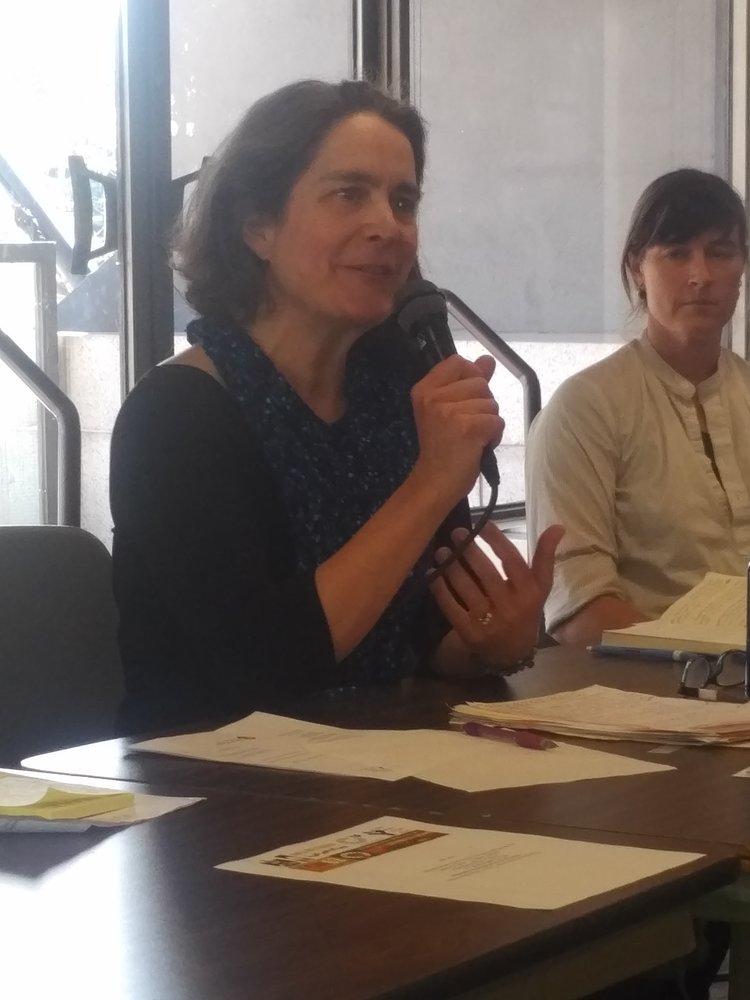As published in VT Digger
UN CSW 62 – International and Vermont –
Practices for Rural Agricultural Development and Peacebuilding
On March 22, the Permanent Mission of Iraq to the UN, the Al-Khoei Foundation and the Grace Initiative(of VT), along with organizational support from the Yale Alum Non-profit Alliance (YANA)New England and Vermont, organized a seminar for the UN Commission on Status of Women (CSW) 62 in New York. This year the UN CSW focused on the empowerment of women and girls in rural development. In view of this year’s theme, our seminar called for empowering women and girls in advancing peacebuilding through community agricultural practices, with international and Vermont perspectives. The CSW seminar focused on an innovative practice that Grace Initiative with its partners, including in Colombia, is promoting is called a Restorative Rural Agricultural Development (RRAD). Here, Vermont practices, through inter alia farmers, CSA managers and State legislative representatives provide insight. An organic fertilizer company, GrewGrow Ventures was a sponsor.
Restorative rural agricultural development combines qualities of restorative justice, such as story-telling and healing with relationship building, engagement, social cohesion with community agriculture endeavors, which promote sustainable food security and livelihoods. This is especially important for women and girls, who suffer disproportionately during conflict. To this end, we firmly believe that agriculture offers a variety of healing benefits as it provides those involved with purpose and opportunity as well as physical and psychological benefits.”[1] . In this regard, sustainable production of food, land and water are the sources of community peacebuilding, rather than the drivers of conflict. According to the Food and Agricultural Organization (FAO), food insecurity and lack of water are a source for the rise of conflicts, exacerbated by climate-related shocks[2]. Our project aims to promote conflict transformation while providing a local source of food security and livelihoods.
The CSW seminar, moderated by Ms. Jessica Scott of UN Sustainable Development Network,
included international and Vermont speakers. From the Permanent Mission of Iraq, Mr. Frias Alkhaqaniexplained the hardship that rural women face in Iraq, especially now after the war against terrorists. In this regard, RRAD has applications in Iraq. Ms. Rita Reddy, senior UN Gender Advisor, gave examples of women’s achievements in promoting community rural development in countries like Viet Nam, Malaysia and Timor-Leste. Ambassador Isaiah Chalaba (Zambia)endorsed the notion of RRAD as it combines spirituality and healing with community agriculture. He discussed current rural programs for women and girls in Zambia combining community agriculture and education.
While attendees appreciated the international speakers, many found the Vermont speakers particularly compelling especially its legislative efforts in promoting sustainable agriculture as well as its innovative community supported agriculture (CSA) practices. Representative Amy Sheldon(Middlebury/Addison 1), who participates on the VT legislative agriculture committee, discussed community goals and challenges in advancing local organic branding and food production. Also, she explained a variety efforts to promote VT farming and locally sourced food, through inter alia: the VT Food Bank; the link of fresh food from VT farms to schools and hospitals; the mission of the VT Land Conservation; and, the goals of the Women’s Agricultural Network (UVM). Also, Representative Sheldon discussed the hardship that dairy farmers face. Ms. Heidi Lynchof Vermont Farmers Food Center (Rutland) discussed VFFC programs for health care, its links with hospitals and the community to ensure nutritious and healthy food sourcing. Heidi also manages VFFC NEA program on community farm stories. Finally, Ms. Amy Frostof Circle Mountain Farm (Guilford) concluded the program with soul searching existential questions such as the links of community farming and the meaning of wealth and the capacity to address life’s vulnerabilities and sudden shocks through farming. Also, Amy explained a link with CSAs and social justice. The Vermont speakers’ presentations exemplified local applications for global peacebuilding. As Dr. Susan Sgorbati, Director CAPA, Bennington College stated, "It is more imperative than ever to find ways to share information, collaborate on ecosystem projects, and build a world where we can providea safe and healthy environment for our women and children."
Ms. Sahar Alsahlani (Interfaith Farm Project and Khoei Foundation) and Ms. Yvonne Lodico, the Initiative for Governance, Reconciliation, Agriculture, and Coexistence (Grace Initiative), a non-profit registered in Vermont.
[1]http://www.farmvetco.org/about-us/our-vision-mission-goals/[2]http://www.fao.org/3/a-I7787e.pdf
UN CSW 62 - RESTORATIVE RURAL AGRICULTURAL DEVELOPMENT
United Nations Commission on Status of Women 62
United Nations Church Center
777 UN Plaza, New York, NY
Restorative Rural Agricultural Development
for Empowering Women and Girls and Advancing Peacebuilding
Concept Note
Our presentation for the UNCSW focused on an Alternative Approach for Empowering Women and Girls in Peacebuilding and Conflict Prevention through innovative community agricultural practices. Our approach is called a Restorative Rural Agricultural Development (RRAD). The programme focuses on women and girls’ leadership for rebuilding communities through healing and engagement combined with agricultural practices that comprise a purpose of fostering sustainable and resilient communities for an enduring peace. Grace Initiative wishes to thank a sponsor GreenGrow Ventures[1], an organic fertilizer company based in Demopolis, AL., exporting to 22 countries, including all over Africa and Middle East.
Restorative rural agricultural development builds from the necessity for healing and for rebuilding of relationships, communities and societies after conflict, violence and extreme poverty. Its goals are transformational with objectives of community reconciliation, sustainability, and resilience.
In addition to healing, community agricultural provides local food sources, providing directly nutrition and sustenance. According to the Food and Agricultural Organization (FAO), malnutrition and food insecurity is on the rise. The food security situation has worsened in parts of sub-Saharan Africa, South-Eastern Asia and Western Asia, and deteriorations have been observed most notably in situations of conflict and conflict combined with droughts or floods. The number of conflicts is also on the rise. Exacerbated by climate-related shocks, conflicts seriously affect food security and are a cause of much of the recent increase in food insecurity. To this end, our project aims to promote peacebuilding and to provide a local source of food security.[2]
Our proposed programme proposes a restorative justice programme that provides truth telling, healing, combined with sustainable agricultural mechanisms for women and girls who are reintegrating back into civil society after conflict and or extreme hardship due to violence or criminal activity. During conflict and violence, women and girls are at high risk of discrimination, gender-violence and extreme poverty. Also, when they reintegrate they do so with substantial trauma and this trauma needs to be addressed.
As part of the healing and sustainability process, we propose community sustainable farming. We firmly believe that agriculture offers a variety of healing benefits as it provides those involved with purpose and opportunity as well as physical and psychological benefits.”[3] For example, through the CSA, women will learn about sustainable and organic farming, which in turn, will provide them with skill building, sustainable consumption and income alternatives for them, their families and their communities. This will ultimately result in high self-esteem for women who can become leaders for peace.
In addition, the program provides an alternative and cost-effective mechanism for facilitating and fostering peacebuilding through innovative community agricultural practices. This program combines qualities of restorative justice, such as story-telling and healing with relationship building, engagement, social cohesion with community agriculture endeavors which promote sustainable and resilient agricultural practices [4]. RRAD considers land management, alternative low cost energy and green technology, and programs such as community supported agriculture (CSA). It will examine holistic policies and alternative development
In summary, the RRAD programme offers an innovative peacebuilding for enabling a sustainable peacebuilding. which mitigates drivers of conflict and helping to prevent conflict. The approach for is applicable for programs which include civil society and faith communities, local governance, gender equity, and youth engagement. The programme’s goal is empowerment for women and girls for rural agricultural development for sustainable and lasting peace.
Achieving Global Goals
The restorative rural agricultural development program integrates global goals such as 2030 Agenda; food security; human rights notions of dignity and justice; climate change imperatives; action plans for preventing violent extremism; UN SCR 1325; the UN CSW62; the Beijing Platform; SDGs 1 (elimination of poverty), 5 (gender equality), 12 (responsible consumption), 15 (life on land) and 16 (peaceful and inclusive societies).
[1] http://greengrowventures.com
[2] http://www.fao.org/3/a-I7787e.pdf
[3] http://www.farmvetco.org/about-us/our-vision-mission-goals/
[4]https://pdfs.semanticscholar.org/a8c5/0718d36ca6664c1b47df3cbe507113f0e050.pdf
